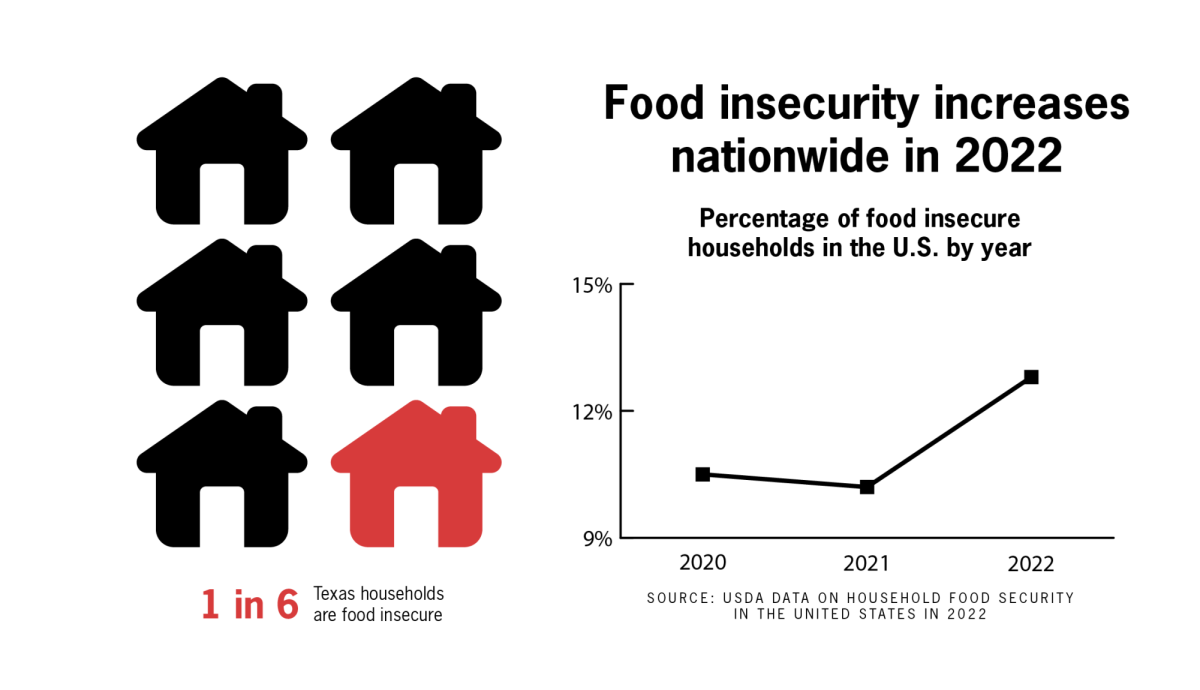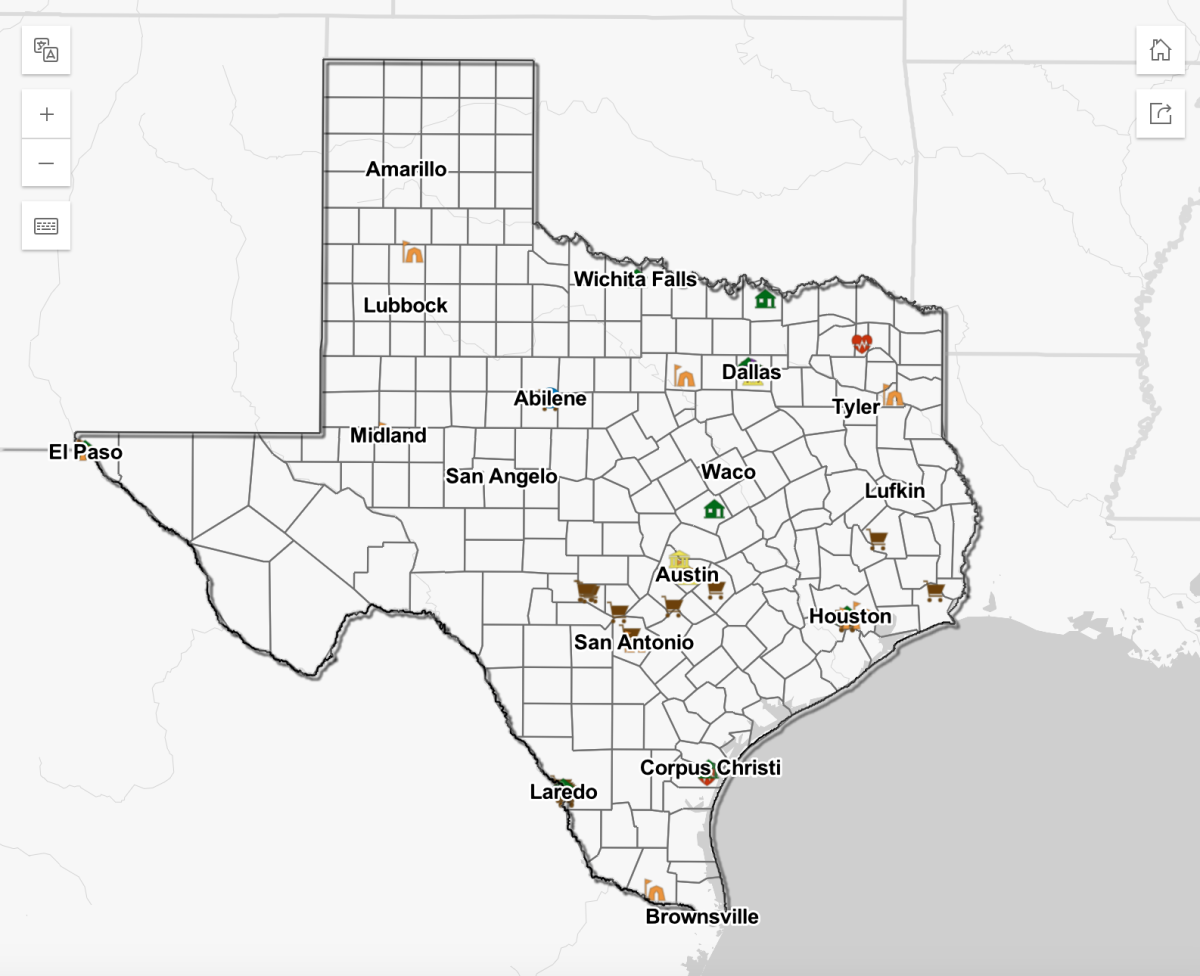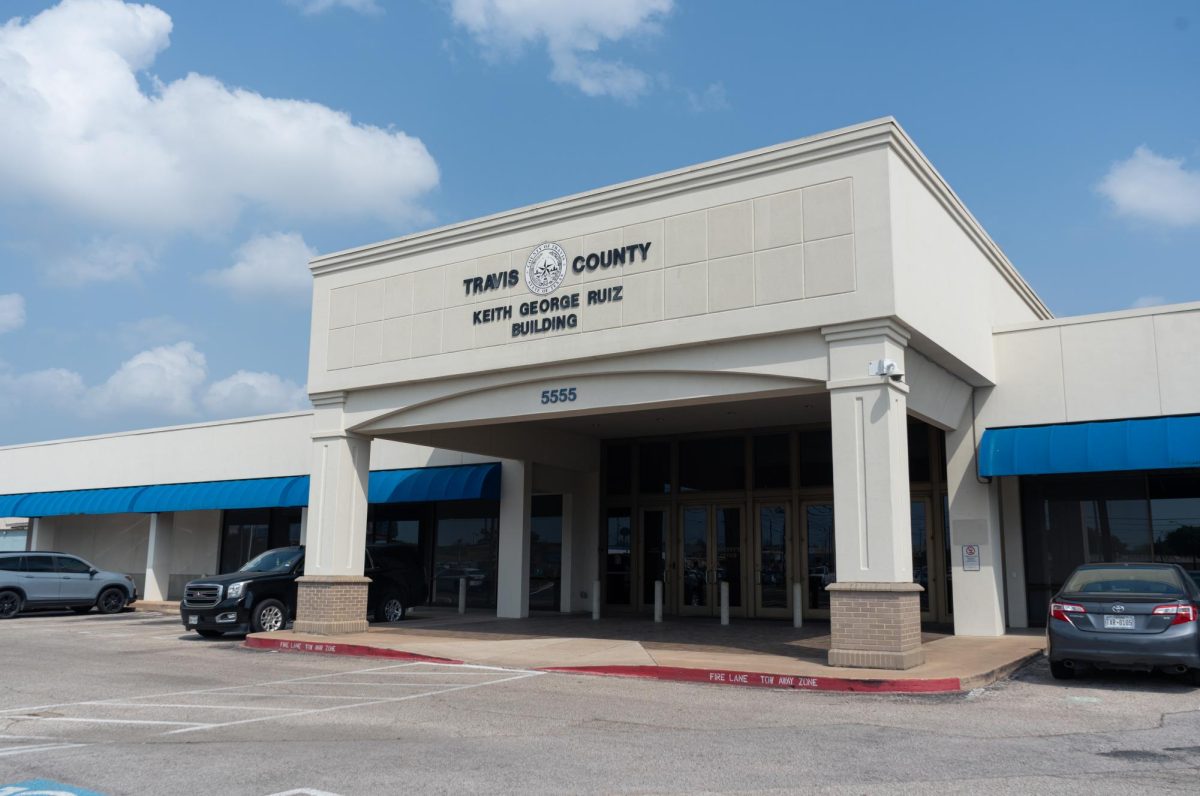New data from the U.S. Department of Agriculture revealed that Texas has the second-highest rate of food insecurity in the nation, an issue felt statewide and at the University.
The USDA data also showed an increase in food insecurity nationwide; in the past year, food insecurity rose by 31% across households. A 2021 report from the Food Security Agency, formerly known as the Food Insecurity Action Team, found that one in three students at the University are food insecure, said public affairs graduate student and agency co-director Erica Howard Cormier. Organizations at the University, including the Food Security Agency and the UT Outpost, aim to increase food security for students and normalize the conversation around food insecurity.
“We’re here to learn, and if you’re focusing on just trying to find your food or you’re hungry, that’s just distracting,” Howard said. “It’s not giving your body and your brain and your community the nourishment it needs to thrive.”
Food insecurity can be long-term or short-term and looks different for each student, UT Outpost coordinator Valeria Martin said. The Outpost is the on-campus food pantry and career closet offering free groceries and professional clothing for students who need it.
“There are a lot of financial hardships and barriers that cause someone to be food insecure for a period of time,” Martin said. “But it can also be really temporary for some folks. For someone, it could be just that their laptop broke and so the money they had budgeted to buy groceries in a particular week had to go toward a new laptop.”
Dat Duong, public health senior and Food Security Agency co-director, said West Campus is considered a food desert, with the only grocery store being the small Target on 21st Street. Many students don’t have transportation to get to another grocery store and rely on public transportation, and having access to the proper amount of meals a day can be difficult, Duong said. Howard said the agency plans to work with the University’s parking and transportation services to roll out a pilot study for a grocery store shuttle in the spring semester.
“Coming here, (food) has become a task that I somehow have to accomplish throughout the day,” Duong said. “It shouldn’t be like that. … There’s a lot of hindrances when it comes to food access to students and how that affects how they’re pursuing their education.”
Howard said the agency’s 2021 report showed that 96% of food-insecure students were not food insecure until they came to the University.
“There is something unique about the university environment that is creating food insecurity,” Howard said. “It’s a new condition that is being created because students are not within their system, their communities. The social safety nets they had around meals are gone and there’s not anything that’s replacing them.”
Howard said she has seen stigma around talking about food insecurity among students, and she wants to normalize this conversation because food insecurity is a systemic issue.
“I want students to know that they’re welcome here (at the Outpost),” Martin said. “There’s a lot of stigma around food insecurity and in needing to ask for help. I want folks to know that it’s okay to ask for help and there are so many resources on campus that can support them when they do.”














